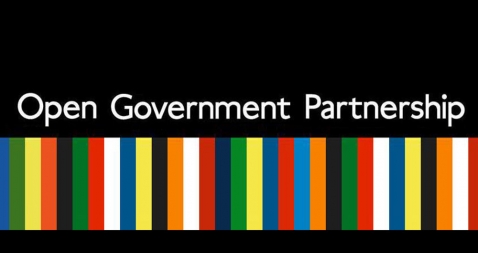
Last October, Spain hosted the OGP 2025 Global Summit, an international benchmark event on open government. More than 2,000 representatives of governments, civil society organisations and public policy experts from around the world met in Vitoria-Gasteiz to discuss the importance of maintaining open, participatory and transparent governments as pillars of society.
The location chosen for this meeting was no coincidence: Spain has been building an open government model for more than a decade that has positioned it as an international benchmark. In this article we are going to review some of the projects that have been launched in our country to transform its public administration and bring it closer to citizens.
The strategic framework: action plans and international commitments
Open government is a culture of governance that promotes the principles of transparency, integrity, accountability, and stakeholder participation in support of democracy and inclusive growth.
Spain's commitment to open government has a consolidated track record. Since Spain joined the Open Government Partnership in 2011, the country has developed five consecutive action plans that have been broadening and deepening government openness initiatives. Each plan has been an advance over the previous one, incorporating new commitments and responding to the emerging challenges of the digital society.
The V Open Government Plan (2024-2028) represents the evolution of this strategy. Its development process incorporated a co-creation methodology that involved multiple actors from civil society, public administrations at all levels and experts in the field. This participatory approach made it easier for the plan to respond to real needs and to have the support of all the sectors involved.
Justice 2030: the biggest transformation of the judicial system in decades
Under the slogan "The greatest transformation of Justice in decades", the Justice 2030 programme is proposed as a roadmap to modernise the Spanish judicial system. Its objective is to build a more accessible, efficient, sustainable and people-centred justice system, through a co-governance model that involves public administrations, legal operators and citizens.
The plan is structured around three strategic axes:
1. Accessibility and people-centred justice
This axis seeks to ensure that justice reaches all citizens, reducing territorial, social and digital gaps. Among the main measures are:
- Face-to-face and digital access and attention: promotion of more accessible judicial headquarters, both physically and technologically, with services adapted to vulnerable groups.
- Basic legal education: legal literacy initiatives for the general population, promoting understanding of the judicial system.
- Inclusive justice: mediation and restorative justice programmes, with special attention to victims and groups in vulnerable situations.
- New social realities: adaptation of the judicial system to contemporary challenges (digital violence, environmental crimes, digital rights, etc.).
2. Efficiency of the public justice service
The programme argues that technological and organisational transformation is key to a more agile and efficient justice. This second axis incorporates advances aimed at modern management and digitalization:
- Justice offices in the municipalities: creation of access points to justice in small towns, bringing judicial services closer to the territory.
- Procedural and organisational reform: updating the Criminal Procedure Law and the procedural framework to improve coordination between courts.
- Electronic judicial file: consolidation of the digital file and interoperable tools between institutions.
- Artificial intelligence and judicial data: responsible use of advanced technologies to improve file management and workload prediction.
3. Sustainable and territorially cohesive justice
The third axis seeks to ensure that judicial modernisation contributes to the Sustainable Development Goals (SDGs) and territorial cohesion.
The main lines are:
- Environmental and climate justice: promotion of legal mechanisms that favor environmental protection and the fight against climate change.
- Territorial cohesion: coordination with autonomous communities to guarantee equal access to justice throughout the country.
- Institutional collaboration: strengthening cooperation between public authorities, local entities and civil society.
The Transparency Portal: the heart of the right to know
If Justice 2030 represents the transformation of access to justice, the Transparency Portal is designed to guarantee the citizen's right to public information. This digital platform, operational since 2014, centralises information on administrative organisations and allows citizens to exercise their right of access to public information in a simple and direct way. Its main functions are:
- Proactive publication of information on government activities, budgets, contracts, grants, agreements and administrative decisions, without the need for citizens to request it.
- Information request system to access documentation that is not publicly available, with legally established deadlines for the administrative response.
- Participatory processes that allow citizens to actively participate in the design and evaluation of public policies.
- Transparency indicators that objectively measure compliance with the obligations of the different administrations, allowing comparisons and encouraging continuous improvement.
This portal is based on three fundamental rights:
- Right to know: every citizen can access public information, either through direct consultation on the portal or by formally exercising their right of access when the information is not available.
- Right to understand: information must be presented in a clear, understandable way and adapted to different audiences, avoiding unnecessary technicalities and facilitating interpretation.
- Right to participate: citizens can intervene in the management of public affairs through the citizen participation mechanisms enabled on the platform.
The platform complies with Law 19/2013, of 9 December, on transparency, access to public information and good governance, a regulation that represented a paradigm shift, recognising access to information as a fundamental right of the citizen and not as a gracious concession of the administration.
Consensus for Open Government: National Open Government Strategy
Another project advocating for open government is the "Consensus for Open Administration." According to this reference document, it is not only a matter of opening data or creating transparency portals, but of radically transforming the way in which public policies are designed and implemented. This consensus replaces the traditional vertical model, where administrations decide unilaterally, with a permanent dialogue between administrations, legal operators and citizens. The document is structured in four strategic axes:
1. Administration Open to the capacities of the public sector
- Development of proactive, innovative and inclusive public employment.
- Responsible implementation of artificial intelligence systems.
- Creating secure and ethical shared data spaces.
2. Administration Open to evidence-informed public policies and participation:
- Development of interactive maps of public policies.
- Systematic evaluation based on data and evidence.
- Incorporation of the citizen voice in all phases of the public policy cycle.
3. Administration Open to citizens:
- Evolution of "My Citizen Folder" towards more personalized services.
- Implementation of digital tools such as SomosGob.
- Radical simplification of administrative procedures and procedures.
4. Administration Open to Transparency, Participation and Accountability:
- Complete renovation of the Transparency Portal.
- Improvement of the transparency mechanisms of the General State Administration.
- Strengthening accountability systems.

Figure 1: Consensus on open government a. Source: own elaboration
The Open Government Forum: a space for permanent dialogue
All these projects and commitments need an institutional space where they can be continuously discussed, evaluated and adjusted. That is precisely the function of the Open Government Forum, which functions as a body for participation and dialogue made up of representatives of the central, regional and local administration. And it is made up of 32 members of civil society carefully selected to ensure diversity of perspectives.
This balanced composition ensures that all voices are heard in the design and implementation of open government policies. The Forum meets regularly to assess the progress of commitments, identify obstacles and propose new initiatives that respond to emerging challenges.
Its transparent and participatory operation, with public minutes and open consultation processes, makes it an international benchmark for good practices in collaborative governance. The Forum is not simply a consultative body, but a space of co-decision where consensus is built that is later translated into concrete public policies.
Hazlab: innovation laboratory for citizen participation
Promoted by the General Directorate of Public Governance of the Ministry for Digital Transformation and Public Function, HazLab is part of the Plan for the Improvement of Citizen Participation in Public Affairs, included in Commitment 3 of the IV Open Government Plan of Spain (2020-2024).
HazLab is a virtual space designed to promote collaboration between the Administration, citizens, academia, professionals and social groups. Its purpose is to promote a new way of building public policies based on innovation, dialogue and cooperation. Specifically, there are three areas of work:
- Virtual spaces for collaboration, which facilitate joint work between administrations, experts and citizens.
- Projects for the design and prototyping of public services, based on participatory and innovative methodologies.
- Resource Library, a repository with audiovisual materials, articles, reports and guides on open government, participation, integrity and transparency.
Registration in HazLab is free and allows you to participate in projects, events and communities of practice. In addition, the platform offers a user manual and a code of conduct to facilitate responsible participation.
In conclusion, the open government projects that Spain is promoting represent much more than isolated initiatives of administrative modernization or technological updates. They constitute a profound cultural change in the very conception of public service, where citizens cease to be mere passive recipients of services to become active co-creators of public policies.


